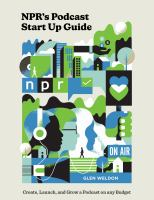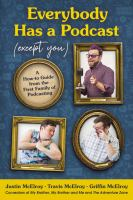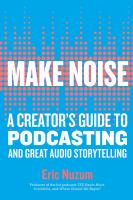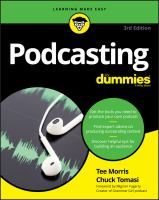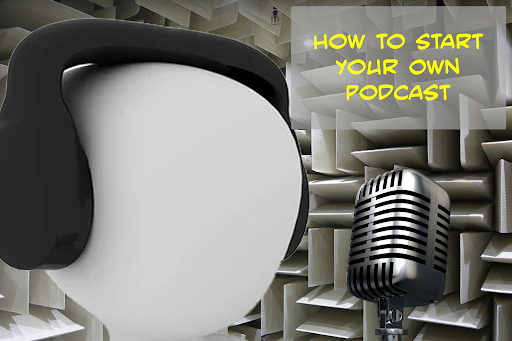
It is reported that there are over 4 million podcasts that have been created around the world. While that may be a lot of competition, it can still be a lot of fun to start your own podcast. But where do you start? Here are some tips to help get you started:
What is your podcast concept?
What will your podcast format look like?
Do you have the right equipment?
What software will you use for podcasting?
How will you post your podcast to the world?
These are just some of the basic tips to get you started. There is so much more to know and do if you would like to start your own podcast, such as show notes, transcripts, artwork, and more.
A very special thank you to Buzzsprout for the research into this blog post.
If you would like to learn more about starting a podcast, here are some books available through the library:
From NPR comes the definitive guide to podcasting, featuring step-by-step advice on how to find a unique topic, tell the best stories, and engage the most listeners, as well as the secrets that will take a podcast to the next level.
Everybody Has a Podcast (Except You): A How-To Guide From the First Family of Podcasting by Justin Mcelroy, Travis Mcelroy, and Griffin Mcelroy
The McElroy brothers introduced their first podcast ten years ago; today they run eleven shows. In doing so they have become experts in creating content listeners love. Here they provide a helpful (and sometimes hilarious) how-to-podcast guide. You’ll find everything you need to know to make, produce, edit, and promote a podcast. Hey, who’s ready to start podcasting?
Veteran podcast creator and strategist Eric Nuzum distills a career’s worth of wisdom, advice, practical information, and big-picture thinking to help podcasters “make noise”–to stand out in this fastest of fastest-growing media universes. Nuzum identifies core principles, including what he considers the key to successful audio storytelling: learning to think the way your audience listens. He delivers essential how-tos, from conducting an effective interview to marketing your podcast, developing your audience, and managing a creative team. He also taps into his deep network to offer advice from audio stars like Ira Glass, Terry Gross, and Anna Sale. This book’s insights and guidance will help readers successfully express themselves as effective audio storytellers, whether for business or pleasure, or a mixture of both.”
Podcasting For Dummies by Tee Morris and Chuck Tomasi
More people than ever are turning to podcasts for on-demand, mobile entertainment and information. Podcasting For Dummies offers a fast and easy way to get the know-how you need to produce and distribute one of your very own. Written by a pair of podcasting pioneers, this book shares insight into the technology behind recording, editing, and sharing podcasts, along with tips and tricks on how to produce a pro-level podcast.

